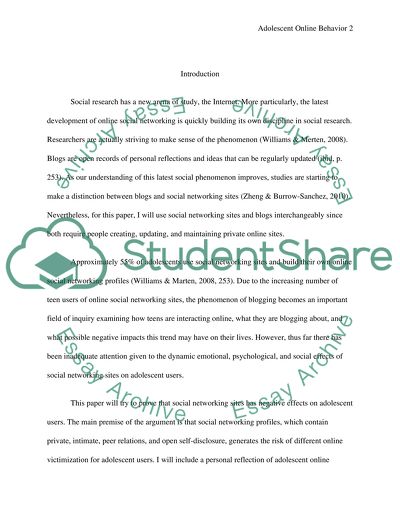Cite this document
(“The Negative Effects of Social Networking Sites on Teens Thesis”, n.d.)
Retrieved from https://studentshare.org/social-science/1421854-negative-effects-of-social-networking-sites-on
Retrieved from https://studentshare.org/social-science/1421854-negative-effects-of-social-networking-sites-on
(The Negative Effects of Social Networking Sites on Teens Thesis)
https://studentshare.org/social-science/1421854-negative-effects-of-social-networking-sites-on.
https://studentshare.org/social-science/1421854-negative-effects-of-social-networking-sites-on.
“The Negative Effects of Social Networking Sites on Teens Thesis”, n.d. https://studentshare.org/social-science/1421854-negative-effects-of-social-networking-sites-on.


